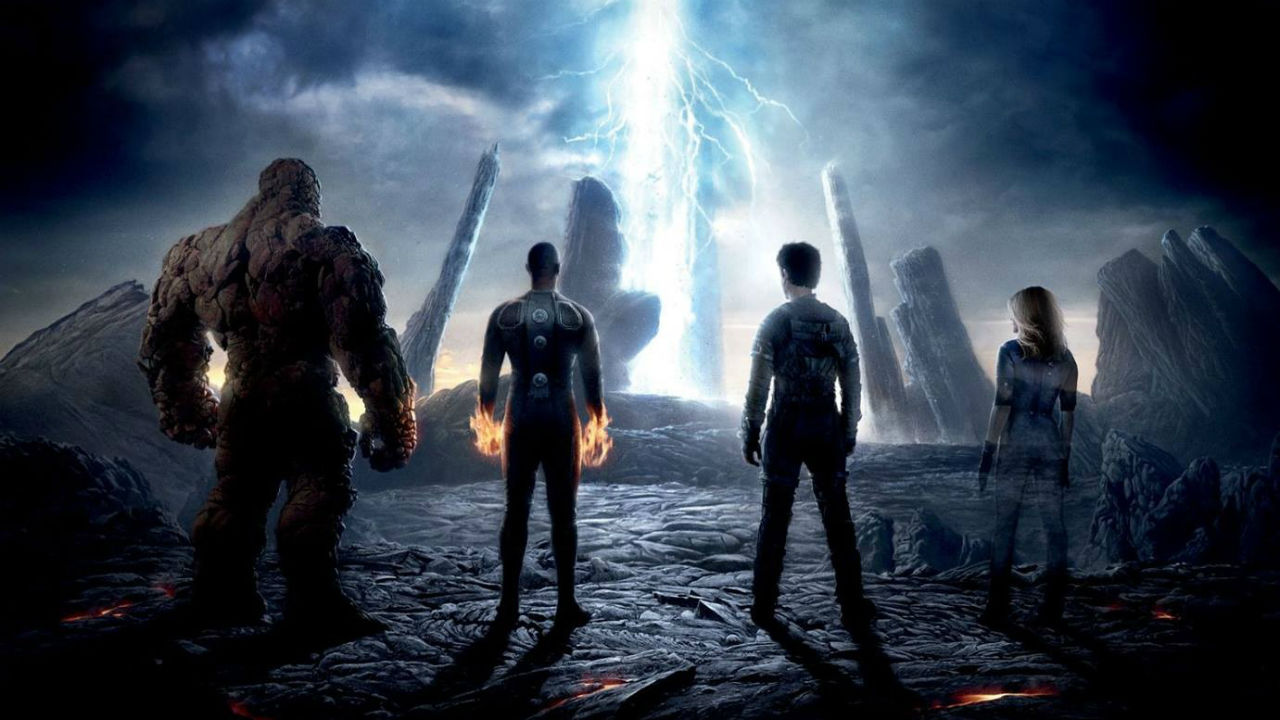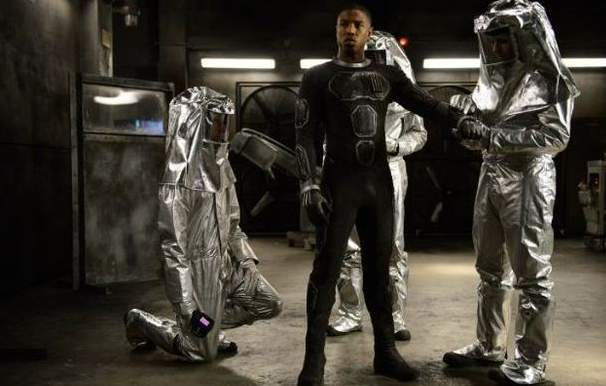Farcical Four.
The point of redundancy in appraisal for the saturating industry of superhero cinema has arrived, engendered with an unsettling steadiness over the past decade or so. There’s nothing to be said about Josh Trank’s Fantastic Four that hasn’t been said about films of this ilk, of which there are far too many, and no gripe to cite that has not yet already been put forward ad nauseam. When things get as achingly generic as Trank’s film, what more is there to offer in way of assessment? New York-based art critic Jerry Saltz once quipped that ‘Being critical of art is a way of showing art respect’. He never saw Fantastic Four coming.
Where’s the motivation behind a film like this? Unfortunately, there’s an answer. Back in the mid-1990s another version of the Fantastic Four story was produced, seemingly with no intention of release (although that last part is under contention). The production was a point of interest for the most recent season of Mitchell Hurwitz’s series Arrested Development. Faced with losing the rights to film Stan Lee and Jack Kirby’s popular comic book, German producer Bernd Eichinger’s production company, Neue Constantin, rushed into production, with the notoriously thrifty Roger Corman overseeing operations. It was entirely a means for Eichinger to retain rights to the characters and the film never saw the light of the day save through bootleg recordings. The story of the production was recently chronicled in the documentary Doomed! The Untold Story of Roger Corman’s “The Fantastic Four“.
If ambiguous reports are to believed – and for the sake of this story, they are – there was a similar impetus behind Trank’s film. In fact, if we’re maintaining belief of those reports then Fox reputedly waited as long as they could before greenlighting this new incarnation of Fantastic Four. Any longer and the production company would have lost the rights. This is rumour, not fact, and yet the end product certainly reflects this possibility of creative nonchalance.
Picture every issue you took with any number of superhero films, combine them in your head into one weak narrative and a reasonable impression of what Trank’s film is like to watch may begin to form. The film’s intentions are so laboured and so inadequately executed that the screenwriting process barely registers as a possible juncture in the production of Fantastic Four. Lines such as “He can build anything” and “This guy doesn’t take orders well” stand in for character development. Trank arduously lays out underdeveloped, tired concepts that point the film in unwanted directions.
One problem that consistently beleaguers sub par superhero films is the relentless need to examine entire hero evolutions. Fantastic Four is particularly plagued by this need, wasting time that could have otherwise been valuably spent on backstory that amounts to nothing and spending over an hour on what fundamentally equals a soulless training montage. Trank was almost certainly hired following the success of his first feature film, the found footage superhero success, Chronicle. His discomfort with the medium of cinema, masked by the deliberately rough nature of Chronicle, is evident.
What does it mean to be a superhero? Curiously enough, Fantastic Four doesn’t care. It’s a film about absolutely nothing in a very literal sense of the word. Events transpire with no sense of purpose, character say words that should have meaning but don’t. Trank confuses cheerlessness for narrative integrity, his film the latest in a string of Batman Begins emulations with no regard as to whether it’s appropriate. There’s absolutely nothing to recommend about Fantastic Four.
2/10
For more Reviews, click here. If you’re digging ReelGood, sign up to our mailing list for exclusive content, early reviews and chances to win big!

